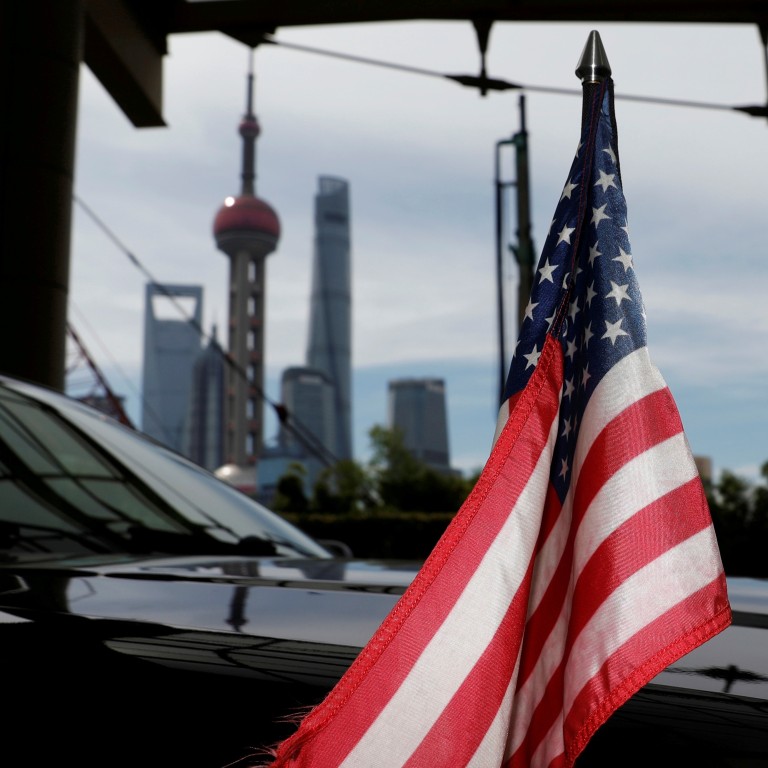
How must the savvy investor prepare, if the world turns bipolar and splits into economic halves around US and China by 2030?
- Owning both US, Chinese assets would led to a “more robust portfolio” in the future, Julius Baer’s Yves Bonzon said
- Trade war could accelerate acceptance of yuan as a global reserve currency
The world could be moving to a bifurcated economic system centred around the United States and China – including separate capital markets – within the next decade, according to Yves Bonzon, the chief investment officer of Swiss private bank Julius Baer.
The US Treasury denied last week there were plans to stop Chinese companies from listing in the US, a denial that was echoed by Trump’s chief economic adviser Larry Kudlow who said on Tuesday that delisting of Chinese firms was “not on the table”. Kudlow said the administration was instead exploring protections for US investors in China.
The ongoing trade war between the two countries could result in a “bipolar world” by 2030 with decoupled Chinese and US economic and financial cycles, as well as separate technology ecosystems, Bonzon said.

“The fundamental beta of the two markets will therefore be independent,” Bonzon said. “This will be the greater return of international diversification. Owning both China and US assets will led to a more robust portfolio than holding one or the other.”
The US and China have been embroiled in a trade war for more than a year, during which the world’s two biggest economies have placed tariffs on hundreds of billions of each other’s goods. Trump is trying to use tariffs and other tactics, such as blacklisting of some Chinese companies, to force Beijing to change decades of industrial and trade policy.
Limits on US capital flows to China could hit global markets, analysts warn
The number of Chinese firms seeking initial public offerings (IPOs) in Hong Kong have been declining in the past 18 months, Cochrane said, citing data from the Hong Kong Securities and Futures Commission.
While he doubts the likelihood of the Trump administration cutting off Chinese companies from US capital markets, Cochrane said such a move could contribute to the “eventual decoupling” of the two economies, particularly if accompanied with continued high tariffs on each other’s goods.
“When economies reduce trade and protect industries and markets at home, inefficiencies arise as capital and production shift to locations with less comparative advantage, due to differential costs of labour, intermediate goods or transport services,” Cochrane said.
HKEX drops London exchange bid after its overtures were spurned
“As costs rise, demand for goods and services is reduced, which slows the pace of overall growth in the economy. When there is reduced competition, there is less incentive to innovate and improve efficiencies, which means that productivity growth will slow, further reducing the pace of economic growth. Undoubtedly there would be winners and losers across industries but the net effect would be to hinder income growth and overall economic growth in the US, in China, and globally,” Cochrane said.
The trade dispute, combined with actions such as potentially restricting Chinese access to US markets, could work against the Trump administration’s goals – notably by increasing the acceptance of the yuan as a global reserve currency, Bonzon said.
“This is another chapter in abusing the position of the dollar, weaponising the dollar,” Bonzon said. “Ultimately, this will lead to the demise of the dollar privilege and the role of the US currency as the only global reserve currency. They are slowly, but surely cutting the branch on which they’re sitting.”
Given the growing bipartisan support among American politicians to contain China, the US is not likely to change its tone dramatically even if Trump is not re-elected in 2020 as US president, Bonzon said.
“I think the train has left the station,” Bonzon said.

